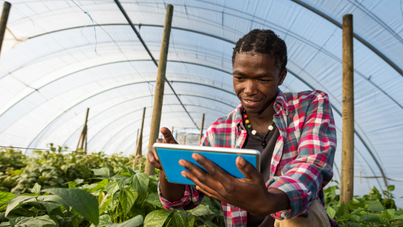Author
Coined at the Rockefeller Foundation in 2007, the Global Impact Investing Network (GIIN) defines impact investing as “investments made with the intention to generate positive and measurable social and environmental impact alongside a financial return”.
Whereas the impact investing sector was once dominated by government-backed development finance institutes (DFIs), NGOs and private foundations, in recent years it has gathered momentum by increasing global awareness of the world’s most pressing challenges, such as climate change, poor access to education and healthcare, and hunger. GIIN currently estimates the impact investing market size at USD 175 billion.
Investing in agriculture in the developing markets
DFIs, specialised development organisations that focus on investing in private sector projects in low- and middle-income countries to promote job creation and sustainable economic growth, have always placed the food and agriculture sector at the heart of their development agendas.
The reasons are obvious – as well as contributing to environmental sustainability, investments in the food and agriculture value chain in the developing markets also help drive private sector economic growth in parts of the world that need it most, along with playing an important role in improving food security and nutritional outcomes.
The UK’s DFI, British International Investment (formerly CDC) has traditionally been one of the leading investors in this space, having supported over 400 companies in the sector since it was established in 1948.
Becoming mainstream
Recent years though, have seen an increased focus on investments in the agriculture sector from all kinds of investors, particularly as the market has begun to realise the role that it can play in the global efforts to mitigate climate change. A survey of 294 investors by GINN in 2020 found that, while food and agriculture currently account for just 9% of total assets under management, the sector is the most common target for the impact investors surveyed. Of respondents, 57% reported having some allocation to the sector, and 54% said that they planned to increase their allocation over the next five years.
This is only likely to continue, with governments across the world looking at ways to incentivise the industry to change. This will certainly be the case in the UK, where innovation from the agriculture and food industry is certain to play a crucial role in our fight against climate change, which in itself will create more and more opportunities for investors who are looking to make a positive impact alongside a financial return.
Agtech
As impact investing in agriculture has become more common, so has the focus on agtech, with investors keen to back sustainable technologies that are designed to rapidly transform our food and agriculture. This is particularly prevalent in early-stage funding, where angel investors and venture capitalists are investing in record numbers into fast-growth companies that are being founded to solve the environmental problems of the 21st century. Recent research suggests that agtech investment reached $31 billion in 2020, up by more than eight times when compared to 2012 levels. We have also seen this in MAINstream, the angel network created by Michelmores, where we have received applications for investments from a number of exciting agtech companies across the UK.
As Agfunder, one of the world’s most active agtech VCs, put it, “from plant-based protein, gene-editing, drones and indoor farming to satellite imaging, precision farm, and computational biology, founders are driving radical transformation in our and agriculture system with technology”.
The interest in the sector shows no sign of slowing and the market potential is nearly limitless – as pointed out by the World Economic Forum, unlike many of today’s tech disruptions, this on is less about consumer convenience or entertainment, but on something far more important: our collective survival.
The future
There is no doubt that impact investing in agriculture is here to stay, and we expect it to become ever more mainstream.
As well as being borne out of necessity, it will also be driven by the fact that investors will increasingly be shown that they do not have to choose between doing good and doing well – instead they will have opportunity to include environmental, social and governance considerations in their investment portfolios, whilst at the same time achieving a financial return.
This article is for general information only and does not, and is not intended to, amount to legal advice and should not be relied upon as such. If you have any questions relating to your particular circumstances, you should seek independent legal advice.

